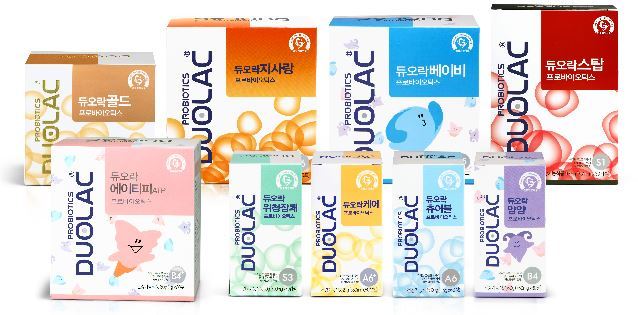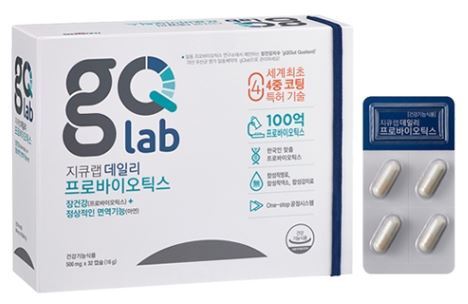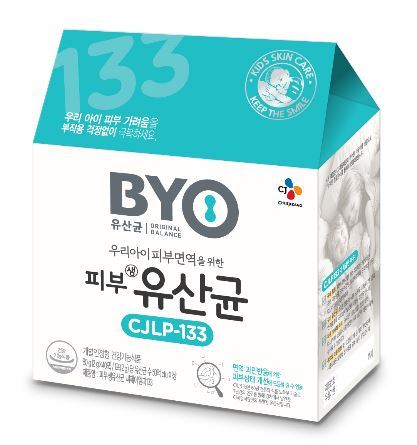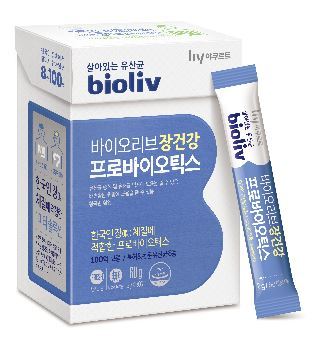Health considerations fuel Korea’s probiotics market
By Sohn Ji-youngPublished : June 2, 2016 - 14:34
Like many others, Lee Jun-sung, a 33-year-old office worker living alone in Seoul, spends most of his day sitting at his office. He also eats out frequently and drinks several times a week with clients — all of which have steadily taken a toll on his physical health.
Seeking to relieve his indigestion as well as hangovers, Lee started taking a probiotic supplement every morning upon a friend’s recommendation that probiotics can improve intestinal health.
Seeking to relieve his indigestion as well as hangovers, Lee started taking a probiotic supplement every morning upon a friend’s recommendation that probiotics can improve intestinal health.

“Since I began taking probiotics, I feel like it’s become much easier to go to the bathroom in the morning,” he said. “I know several people around me who have chosen probiotics for similar reasons.”
Lee is one among a growing number of health-conscious South Koreans, mostly aged 30 and up, who are turning to probiotic supplements to improve their digestive systems and general wellness.
The World Health Organization defines probiotics as live microorganisms which confer health benefits on the host when administered in adequate amounts, although this doesn’t mean that all products claiming to be probiotics meet these criteria.
Fermented foods like yogurt, kimchi, Japanese natto and German sauerkraut are rich in lactic acid bacteria, a key type of probiotic thought to aid digestion and boost the immune system.
Encouraged by a growing demand for concentrated forms of “good bacteria,” several Korean companies including Cell Biotech, Ildong Pharmaceutical, CJ CheilJedang and Korea Yakult have introduced their own probiotic brands in recent years, fueling the expansion of the local probiotics market.
According to the Ministry of Food and Drug Safety, domestic production of probiotics has quickly risen in recent years, from 80.4 billion won in 2013 to 138.8 billion won in 2014, with a projected production of 200 billion won for 2015.
One of the forerunners in this segment is Cell Biotech, a KOSDAQ-listed company which solely specializes in probiotics research and production. Its brand Duolac is currently sold in Korea and some 40 other countries.
Duolac, available in capsule, tablet and stick sachet types for both children and adults, is based on high-tolerance lactic acid bacteria extracted from the feces of newborns and Korean fermented foods like kimchi.
“Compared to others, our lactobacilli are strong, because they have survived strong, pungent foods such as garlic, green onions and peppers used in spicy Korean dishes,” Cell Biotech spokesperson Kang Mu-sung told The Korea Herald.
It also boasts a patented dual-coating technology designed to ensure that the lactic acid bacteria successfully reaches the intestines without being destroyed by the digestive system, and multiplies.
In tandem with Duolac’s rising popularity, Cell Biotech’s sales rose by 57 percent from 31.6 billion won ($26.5 million) in 2013 to 49.5 billion won in 2015, with net profit more than doubling during the two-year period to 17.5 billion won last year.
“Though probiotics are behind ginseng and vitamins in the dietary supplements segment as of now, we expect probiotics to steadily narrow down this gap in the future,” Kang said.
Meanwhile, Ildong Pharmaceutical has pledged to nurture its probiotics brand gQlab, launched in October 2015, as its future growth engine.

Unlike competing products, gQlab was developed with bacteria extracted from Koreans’ intestines and breast milk, which the firm claims makes it more suitable for intake by locals.
GQlab also boasts its own patented coating system through which the lactobacillus is surrounded by four layers of protection to help it reach the intestines, in addition to enhanced storage safety, the Korean drugmaker said.
Korea’s biggest food-maker CJ CheilJedang has also thrown its hat into the ring, debuting its BYO Probiotic CJLP133 in December 2013. The probiotic was discovered and developed after singling out a lactobacillus found in kimchi that positively impacted skin health.

“Unlike most digestion-related probiotics in the market, CJLP133 is the first locally-made herbal lactobacillus proven to be effective in treating skin problems including atopic dermatitis,” CJ CheilJedang spokesperson Lee Hye-jin said.
CJLP133 was also certified as a dietary ingredient in a rare decision by the U.S. Food and Drug Administration in April, paving the way for its overseas launch.
Last year, CJ additionally launched CJLP243, a probiotic that aids intestinal health. The two products together recorded sales of roughly 30 billion won 2015, the firm said, forecasting its sales to double to more than 60 billion won this year.
Korea Yakult, the country’s biggest maker of yogurt and fermented milk products, introduced its own high-performance probiotics brand Bioliv in May 2015 as well, vowing to further expand its product lineup in the future.

“We have a number of patented probiotics set for commercialization in the near future — one for skin health, another for improved wrinkles and another for reduction of neutral fats,” said Korea Yakult spokesperson Park Won-kyoung.
With the continued diversification of probiotics and their medical benefits and Korea’s fast-growing aging population, the firm expects the continued expansion of the local probiotics market in line with global trends, Park said.
According to U.S.-based market analyst Grand View Research, the global probiotics market is expected to grow annually by 7.3 percent from 2014 to reach $52.34 billion by 2022.
By Sohn Ji-young (jys@heraldcorp.com)


![[Exclusive] Korean military set to ban iPhones over 'security' concerns](http://res.heraldm.com/phpwas/restmb_idxmake.php?idx=644&simg=/content/image/2024/04/23/20240423050599_0.jpg&u=20240423183955)

![[Graphic News] 77% of young Koreans still financially dependent](http://res.heraldm.com/phpwas/restmb_idxmake.php?idx=644&simg=/content/image/2024/04/22/20240422050762_0.gif&u=)



![[Pressure points] Leggings in public: Fashion statement or social faux pas?](http://res.heraldm.com/phpwas/restmb_idxmake.php?idx=644&simg=/content/image/2024/04/23/20240423050669_0.jpg&u=)









